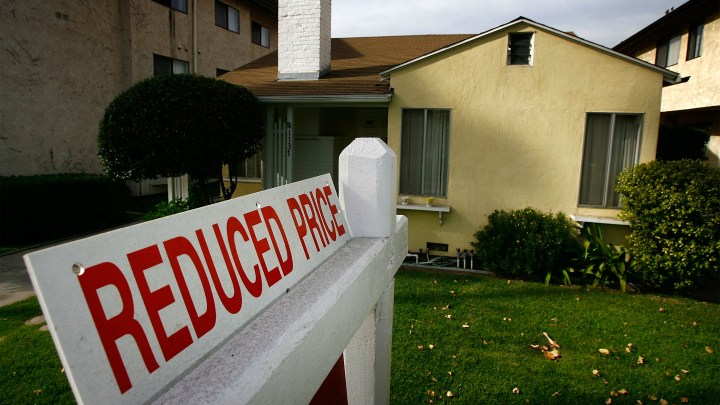
More home sellers being forced to cut prices

It’s never easy to set the price of a home. It gets even trickier in a cooling housing market.
Nancy McInerny of Aberdeen, Maryland listed her four-bedroom house for $399,000 in January. Four months and two price cuts later, she sold it for $375,000. Her husband had already moved to Indiana for a new job and she was anxious to join him.
“It hurt,” she said. “I just wanted out of there, honestly.”
As the housing market slowdown officially passes the one-year mark, more sellers like McInerny are having to lower their expectations. According to the latest Case-Shiller National Home Price Index out Tuesday, home prices grew 3.7% in March. Prices are still growing, but it was the twelfth straight month of slower price growth.
According to Zillow, about 15% of listings had a price cut in April. That’s up from 12% a year ago. Skylar Olsen, Zillow’s director of economic research, said there is an advantage to a price cut. It moves a house back up to the top of real estate search results.
“More buyers might experience your listing that way,” she said.
There’s a downside, though: buyers tend to react negatively to a house that’s been reduced.
“You get a bit of the taste of the lemon in your mouth, in the sense of, ‘Oh, there’s something about this home that’s not selling,’” said Olsen.
Typically, the longer a house sits on the market, the lower the final price.
Taylor Marr, a senior economist with Redfin, said a listing gets more than three times as many views when it’s first posted than after a price cut.
“It’s definitely more advantageous to price your home right the first time,” he said.
But that’s easier said than done. Lisa Lynn worked with a local broker who knew the market when she listed her home in suburban Chicago in March for $389,000. After it failed to sell, she dropped the price twice before accepting an offer for $357,000. That was $20,000 less than she’d paid for the house in 2007.
“Could we have set the price lower? I guess,” she said. “And then if we had sold that first weekend we would wonder, ‘well could we have gotten more for it?’”
There’s a lot happening in the world. Through it all, Marketplace is here for you.
You rely on Marketplace to break down the world’s events and tell you how it affects you in a fact-based, approachable way. We rely on your financial support to keep making that possible.
Your donation today powers the independent journalism that you rely on. For just $5/month, you can help sustain Marketplace so we can keep reporting on the things that matter to you.


















